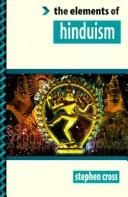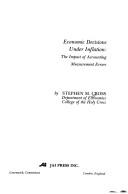| Listing 1 - 8 of 8 |
Sort by
|
Book
ISBN: 9780824837358 0824837355 Year: 2013 Publisher: Honolulu University of Hawaii Press
Abstract | Keywords | Export | Availability | Bookmark
 Loading...
Loading...Choose an application
- Reference Manager
- EndNote
- RefWorks (Direct export to RefWorks)
Schopenhauer is widely recognized as the Western philosopher who has shown the greatest openness to Indian thought and whose own ideas approach most closely to it. This book examines his encounter with important schools of Hindu and Buddhist philosophy and subjects the principal apparent affinities to a careful analysis. Initial chapters describe Schopenhauer’s encounter with Indian thought in the context of the intellectual climate of early nineteenth-century Europe. For the first time, Indian texts and ideas were becoming available and the belief that they could bring about a second Renaissance—an “Oriental Renaissance”—was widespread. Schopenhauer shared in this enthusiasm and for the rest of his life assiduously kept abreast of the new knowledge of India. Principal sections of the book consider the two main pillars of Schopenhauer’s system in relation to broadly comparable ideas found, in the case of Hindu thought, in Advaita Vedānta, and within Buddhism in the Mādhyamika and Yogācāra schools. Schopenhauer’s doctrine of the world as representation, or a flow of impressions appearing in the consciousness of living beings, is first considered. The convergence between this teaching and Indian idealism, especially the doctrine of illusory appearance (māyā), has long been recognized. Schopenhauer himself was aware of it, emphasizing that it was the result not of influence but of a remarkable convergence between Eastern and Western thought. This convergence is subjected to a much more detailed examination than has previously been carried out, undertaken in the light of twentieth-century Indology and recent studies of Schopenhauer. The second main pillar of Schopenhauer’s system, the doctrine of the world as will, is then examined and its relationship to Indian thought explored. This section of the work breaks new ground in the study of Schopenhauer, for although the similarity of his ethical and soteriological teaching to that of Indian religions (particularly Buddhism) has long been noted the underlying reasons for this have not been grasped. It is demonstrated that they are to be found in hitherto unrecognized affinities, of which Schopenhauer himself was largely unaware, between the metaphysics of the will and Indian ideas relating to karmic impressions (vāsanās), the store-consciousness, the causal body, and śakti as the “force” or “energy” that maintains the existence of the world. Final chapters discuss the controversial and difficult question of the relation of the will to final reality in Schopenhauer’s thought in the light of Indian conceptions, and suggest that the two central pillars of his philosophy may be seen, to a greater extent than previously supposed, as a bridge by which the Eastern and Western traditions of philosophical thought may be brought into a closer and more creative relationship.
Hindu philosophy --- Buddhist philosophy --- Will --- Representation (Philosophy) --- Schopenhauer, Arthur, --- Cetanā --- Conation --- Volition --- Ethics --- Philosophy --- Psychology --- Self --- Representationalism (Philosophy) --- Representationism (Philosophy) --- Culture --- Philosophy, Hindu --- Philosophy, Indic --- Philosophy, Buddhist --- Buddhism and philosophy --- Schopenhauer, A. --- Schopenhauer, Arthur --- Shūpinhawar, Artūr, --- Шопенгауэр, Артур, --- Shopengauėr, Artur, --- Shu-pen-hua, --- Sopenaouer, --- Schopenhauer, Arturo, --- Schopenhauer, Artur, --- Шопенгауер, Артур, --- Shūpinhāvir, Ārtūr, --- Suʼu-pun-her, --- שאפענהויער, ארטור --- שאפענהויער, ארטור, --- שופנהאואר, ארתור, --- שופנהאואר, --- שופנהואר, ארתור --- شوپنهاور، آرتور --- شوپنهاور، أرثر --- شوپنهور، أرثر --- 叔本华, --- 叔本華, --- Schopenhauer, Arthur, - 1788-1860

ISBN: 185230569X Year: 1995 Publisher: Shaftesbury : Element Books,
Abstract | Keywords | Export | Availability | Bookmark
 Loading...
Loading...Choose an application
- Reference Manager
- EndNote
- RefWorks (Direct export to RefWorks)
Book
ISBN: 0824871049 0824839080 Year: 2013 Publisher: Honolulu : University of Hawaii Press,
Abstract | Keywords | Export | Availability | Bookmark
 Loading...
Loading...Choose an application
- Reference Manager
- EndNote
- RefWorks (Direct export to RefWorks)
Schopenhauer is widely recognized as the Western philosopher who has shown the greatest openness to Indian thought and whose own ideas approach most closely to it. This book examines his encounter with important schools of Hindu and Buddhist philosophy and subjects the principal apparent affinities to a careful analysis. Initial chapters describe Schopenhauer's encounter with Indian thought in the context of the intellectual climate of early nineteenth-century Europe. For the first time, Indian texts and ideas were becoming available and the belief that they could bring about a second Renaissance-an "Oriental Renaissance"-was widespread. Schopenhauer shared in this enthusiasm and for the rest of his life assiduously kept abreast of the new knowledge of India.Principal sections of the book consider the two main pillars of Schopenhauer's system in relation to broadly comparable ideas found, in the case of Hindu thought, in Advaita Vedānta, and within Buddhism in the Mādhyamika and Yogācāra schools. Schopenhauer's doctrine of the world as representation, or a flow of impressions appearing in the consciousness of living beings, is first considered. The convergence between this teaching and Indian idealism, especially the doctrine of illusory appearance (māyā), has long been recognized. Schopenhauer himself was aware of it, emphasizing that it was the result not of influence but of a remarkable convergence between Eastern and Western thought. This convergence is subjected to a much more detailed examination than has previously been carried out, undertaken in the light of twentieth-century Indology and recent studies of Schopenhauer.The second main pillar of Schopenhauer's system, the doctrine of the world as will, is then examined and its relationship to Indian thought explored. This section of the work breaks new ground in the study of Schopenhauer, for although the similarity of his ethical and soteriological teaching to that of Indian religions (particularly Buddhism) has long been noted the underlying reasons for this have not been grasped. It is demonstrated that they are to be found in hitherto unrecognized affinities, of which Schopenhauer himself was largely unaware, between the metaphysics of the will and Indian ideas relating to karmic impressions (vāsanās), the store-consciousness, the causal body, and śakti as the "force" or "energy" that maintains the existence of the world.Final chapters discuss the controversial and difficult question of the relation of the will to final reality in Schopenhauer's thought in the light of Indian conceptions, and suggest that the two central pillars of his philosophy may be seen, to a greater extent than previously supposed, as a bridge by which the Eastern and Western traditions of philosophical thought may be brought into a closer and more creative relationship.
Representation (Philosophy) --- Will. --- Buddhist philosophy. --- Hindu philosophy. --- Schopenhauer, Arthur,
Book
ISBN: 9780824839086 Year: 2013 Publisher: Honolulu
Abstract | Keywords | Export | Availability | Bookmark
 Loading...
Loading...Choose an application
- Reference Manager
- EndNote
- RefWorks (Direct export to RefWorks)
Book
ISBN: 2351182995 9782351182994 Year: 2016 Publisher: Paris: Almora,
Abstract | Keywords | Export | Availability | Bookmark
 Loading...
Loading...Choose an application
- Reference Manager
- EndNote
- RefWorks (Direct export to RefWorks)
Enfin une introduction simple et complète sur l'histoire, la philosophie, les croyances, la mythologie et la pratique de l'hindouisme… L'auteur expose le contenu des Vedas, des Upanishads, et de la Bhagavad Gita, familiarise le lecteur avec les divinités principales (Shiva, Brahma, Vishnu, Parvati et Durga) et discute de l'importance du gourou dans la tradition indienne, du karma et de la nature de l'homme. Stephen Cross insiste tout particulièrement sur le yoga, l'advaita vedanta, la bhakti et le tantra

ISBN: 0892322403 Year: 1982 Publisher: Greenwich, Conn. JAI Press
Abstract | Keywords | Export | Availability | Bookmark
 Loading...
Loading...Choose an application
- Reference Manager
- EndNote
- RefWorks (Direct export to RefWorks)
Book
ISBN: 3030182444 3030182436 Year: 2019 Publisher: Cham : Springer International Publishing : Imprint: Springer,
Abstract | Keywords | Export | Availability | Bookmark
 Loading...
Loading...Choose an application
- Reference Manager
- EndNote
- RefWorks (Direct export to RefWorks)
This book offers a new, practical approach to healthcare reform. Departing from the priorities applied in traditional approaches, it instead assesses – both theoretically and practically – the successful lessons learned in other safety-critical industries, and applies them to healthcare settings. The authors focus on the importance of human factors and performance measures to establish proactive, systematic methods for healthcare system design. This approach helps to identify potential hazards before accidents occur, enhancing patient safety. In addition, the book details the new approach on the basis of real-world applications in the NHS and insights from NHS staff. Case studies and results are presented, demonstrating the significant improvements that can be achieved in risk reduction and safety culture. Lastly, the book outlines what steps healthcare organisations need to take in order to successfully adopt this new approach. The approach and experiential learning is brought together through the development of a new holistic patient safety education syllabus.
Patients --- Health facilities --- Safety measures. --- Risk management. --- System safety. --- Practice of medicine. --- Biomedical engineering. --- Quality Control, Reliability, Safety and Risk. --- Health Administration. --- Practice and Hospital Management. --- Biomedical Engineering and Bioengineering. --- Safety, System --- Safety of systems --- Systems safety --- Accidents --- Industrial safety --- Systems engineering --- Clinical engineering --- Medical engineering --- Bioengineering --- Biophysics --- Engineering --- Medicine --- Medical practice --- Practice of medicine --- Physician practice acquisitions --- Prevention --- Quality control. --- Reliability. --- Industrial safety. --- Health administration. --- Industrial accidents --- Industries --- Job safety --- Occupational hazards, Prevention of --- Occupational health and safety --- Occupational safety and health --- Prevention of industrial accidents --- Prevention of occupational hazards --- Safety, Industrial --- Safety engineering --- Safety measures --- Safety of workers --- System safety --- Dependability --- Trustworthiness --- Conduct of life --- Factory management --- Industrial engineering --- Reliability (Engineering) --- Sampling (Statistics) --- Standardization --- Quality assurance --- Quality of products
Book
ISBN: 9783030182441 Year: 2019 Publisher: Cham Springer International Publishing :Imprint: Springer
Abstract | Keywords | Export | Availability | Bookmark
 Loading...
Loading...Choose an application
- Reference Manager
- EndNote
- RefWorks (Direct export to RefWorks)
| Listing 1 - 8 of 8 |
Sort by
|

 Search
Search Feedback
Feedback About
About Help
Help News
News